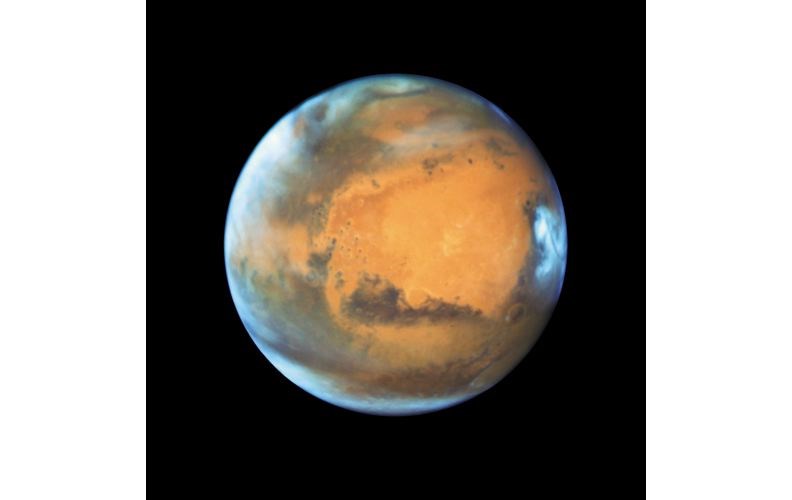For all of human existence, in every culture we know of, humans have looked to the nighttime sky and speculated on the universe.
What are the points of light? Why do some move? Why do some blaze across the sky and end in a fiery death? What are comets? What is the moon?
Stories around the fire led to ancient religions which yielded to magi watching the nightly pageant. Eventually, our understanding of technology allowed for the first telescopes and a whole new universe was exposed.
As we have come to understand more and more about physics and chemistry, more of the universe has been revealed. We can see quasars at the very edges of space and time. A black hole inhabits the core of the Milky Way. Water and hydrogen cyanide can be detected in interstellar clouds. Atoms of all the known elements burn in distant suns.
Our ability to look out into space and back into time has answered many cosmic questions and raised many more.
But in terms of stepping off Earth and into the solar system, humanity is still in its infancy.
We've only made it to the moon and that is only 385,000 kilometres away. The nearest planets are tens of millions of kilometres beyond our reach for now.
Since we can't get to the planets in person, we have done the next best thing and sent robotic probes.
They are sophisticated machines able to detect radiation across broad bands of the electromagnetic spectrum and equipped with mass spectrometers and atomic absorption instruments able to determine the chemical content of distant places.
We know Titan has ethane and methane seas flowing across its surface. Jupiter's moon Europa and Saturn's fractured Enceladus are spitting out streams of water into the surrounding space. Iron ores and other minerals litter the surface of Mars. Molten lead and sulfuric acid clouds shroud Venus.
We haven't been to these places, but our creations have and shown us wonders to behold.
Maybe that can change.
Last week, scientists revealed they had found liquid water on Mars. Not on the surface. Any water on the surface would quickly boil away due to the very thin atmosphere. (The boiling point of a liquid is related to the pressure of gas above it.)
Instead, Dr. R. Orosie and colleagues confirmed they had found an underground lake. Located deep under Planum Australe, they used the Mars Express Orbiter to engage in three years and 29 passes over the region. The Mars Advanced Radar for Subsurface and Ionosphere Sounding did its job probing deep under the layer of frozen water at the pole and revealed the liquid body beneath.
The most important feature of the lake is its stability. This is not a flash flood or a transitory body of water.
With the three years of observations, the scientists can state it is a permanent feature of this part of the planet's polar region.
Scientists have long predicted the presence of water on Mars.
In 1877, Italian astronomer Giovanni Schiaparelli was the first to observe dark lines banding the mid-latitudes of the planet and speculate these might be canals.
Many subsequent astronomers confirmed his observations.
More advance science and the arrival of the Viking lander dispelled the promise of free flowing water on the surface - Martian canals were science fiction. But subsequent probes confirmed water still appears on the surface from time to time. The structure of gullies and ravines across the surface are consistent with break-out flows.
Finding a subsurface lake confirms the presence of liquid water and validates previous observations.
Mars was once a wet planet. And water is ubiquitous.
Why does it matter? At a practical level, liquid water would allow humans to live on Mars.
The water could be purified for consumption by astronauts or Mars settlers, and used to grow food on the planet. Water can also be split by electrolysis to give free oxygen and hydrogen.
Oxygen is critical to life and having a ready supply on Mars would significantly extend any possible mission. Hydrogen could provide the fuel for rockets to return home to Earth.
Simply put, liquid water on Mars moves the possibility of colonization one step closer to a possibility.
But liquid water is also required for life as we know and understand it.
The presence of a mineral rich water deposit, sheltered from the freezing conditions on the planet surface, may be the critical component in our search for extra-terrestrial life. Whether microbial or more complex, discovering living creatures in this subterranean lake would significantly change our view of the universe.
And perhaps that is why our ancestors looked to the skies so long ago. They, too, wanted to understand their place in the universe.
Perhaps they, too, speculated on the possibility of life elsewhere in the universe.



